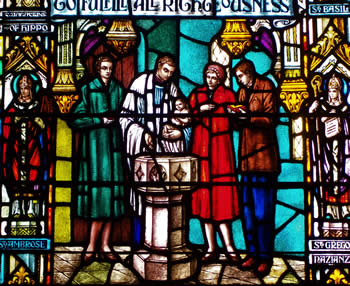2 Sam 12:7-10, 13
Psalm 32
Galatians 2:16, 19-21
Luke 7:36-8:3
Martin Luther is famous, and frequently criticized, for encouraging Melancthon to “sin boldly!” What is less frequently quoted is what follows: “…but believe and rejoice in Christ even more boldly!”
It would be easy to read this week’s readings, in which sin seems to be at the forefront of each story, with a deprecating attitude toward human nature. However, amidst each of these stories of sin what most struck me was Jesus’ words to the pharisee at whose house he was dining:
So I tell you, her many sins have been forigiven
because she has shown great love
But the one to whom little is forgiven, loves little.
In these readings, we get a nice balance between narrative and theology. That is, we start with king David’s major screw-up – he sleeps with Bathsheba, the wife of one his army commanders, Uriah, who is off fighting David’s war, impregnates her, has Uriah killed at the front lines, and then marries Bathsheba; and we end with Luke’s fascinating juxtaposition between an unnamed “sinful woman in the city” who performs an act of mercy for Jesus and the righteousness of the pharisee with whom he is dining. Sandwiched between these two stories is Paul’s more theological discussion of the value (or lack thereof) of the law vis-a-vis faith in Christ. Taken as a whole, the message is incontrovertibly clear: sin is the great equalizer, God’s forgiveness encompasses all, and the only possible response to such radical forgiveness is great love that flows from what St. Benedict calls “an expanded heart” (RB Prol: 49).
Servais Pinckaers, O.P., one of the most influential historians and scholars of moral theology in the twentieth-century, claimed throughout his career that the purpose of moral theology is not to set down rules, regulations, and punishments, but rather to lead one to a recognition of sin that is grounded in the deeper reality of God’s love and forgiveness, expressed most poignantly in the Beatitudes (Matt 5 & Luke 6) and through acts of love. When one fully comprehends the beauty, goodness, and love that is God’s true essence, the sense of one’s sinfulness emerges not because of self-hatred but rather because we know that we cannot perfectly fulfill the law or ever hope to imitate God’s perfect love. Hence forgiveness allows us to take our eyes off of ourselves, to look to God in faith, and to live from that sense of forgiveness. Living our lives as a response to that sense of liberation from sin enables the kind of great love that is exemplified in the woman’s act of kindness toward Jesus.
In his Rule, Benedict suggests that the monks pray the Our Father at least three times daily, on account of the fact that we all need to be reminded to forgive and be forgiven multiple times every day! Thus, these readings remind us that it is not our moral perfection that allows us to earn God’s love, but rather our humility and recognition of our need of forgiveness that enables us to practice great love in the small and the big things of our daily lives.




Trackbacks/Pingbacks